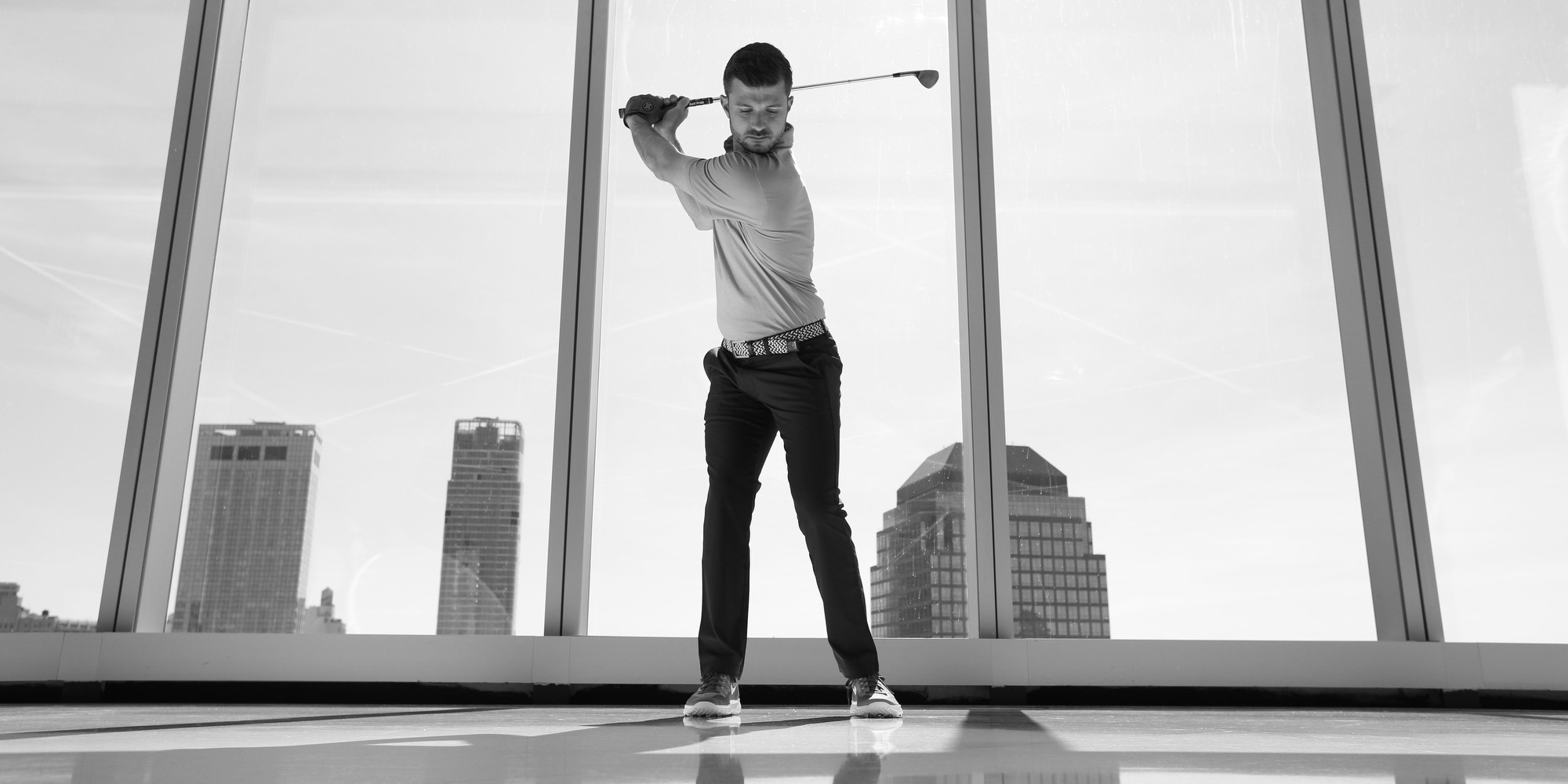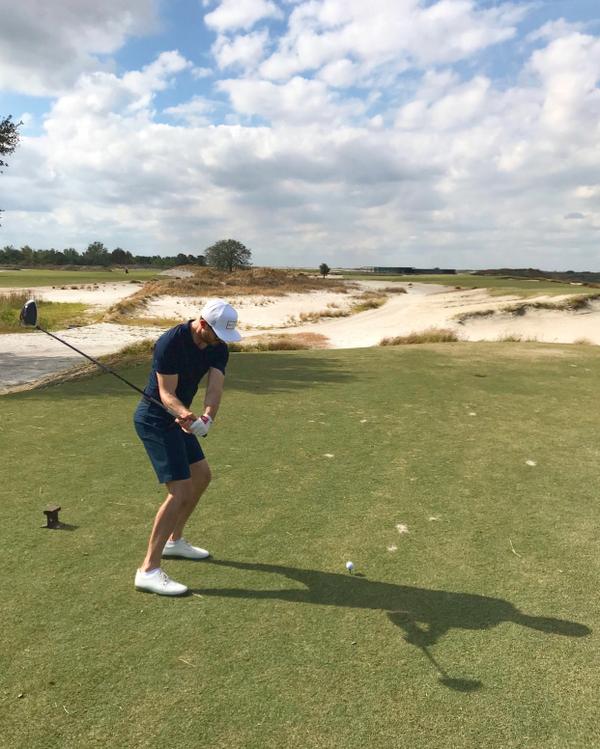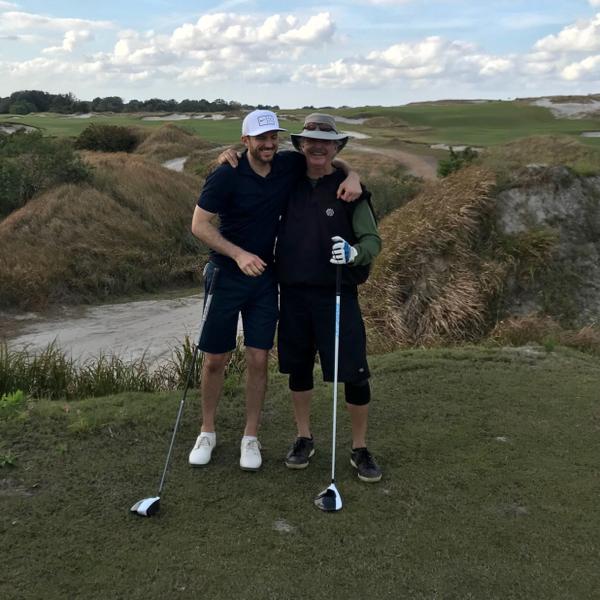I haven’t played a round of golf in 2018. That’s … sad.
For one reason or another, I’ve been unable to hit the links.
And just when I thought I’d be able to “binge golf” in August, a shoulder/chest injury totally crushed that plan.
There’s one word I’ve started to gently use to remind myself that it’s a temporary thing and that I’ll be back on the course soon:
TRUST
This got me to thinking about where else I’ve struggled with trust, with patience, with my self belief, and how all of those have affected my results and relationships on and off the course.
I’m going to dive deep, so if you want to, go ahead and scroll down to the lighter stuff after the second photo.
But, if you’re still with me, buckle up.
Trusting the rehab process
After leaving my previous corporate job, I decided to extend my downtime to healthily unplug, give my mind a rest, and fill my soul with things that fulfilled me.
I was going to actually go on dates.
I was going to get back on a real, solid training regimen.
I was going to play: golf, soccer, dancing, weekend getaways, you name it.
But then, the worst happened…
A kid fell on my shoulder while I was playing goalkeeper.
Next thing you know, “POP!” and instant pain.
At first, I was certain I broke something.
Fortunately, no bones were out of place.
But it left my SC (sternoclavicular) joint horribly sprained.
This knocked the wind out of my sails pretty hard and I started to spiral a bit in a negative direction.
Thoughts like these quickly began to surface:
- Being injured means I’ll never get back to full swing speed
- I’ll never amount to anything
- I don’t deserve to be successful, have a wonderfully intimate relationship, make a lot of money, or get in better shape
Woah… ?
Let’s peel back the curtain and dive into Cory’s brain for a minute.
What’s really going on and allowing these thoughts to surface?
For starters, I hadn’t been operating from a state of trust.
It’s a state that takes work and constant maintenance.
Kind of like a software update.
The act of living in trust comes from acknowledging and releasing the darkest thoughts we might have.
We cannot necessarily control what those thoughts are, but we can control how we let them affect us.
I’ve found that I must put in the work by:
- Meditating with an app like Headspace
- Breathing with intent
- Moving well
- Surrounding myself with people who lift me up
Trust off the tee
I’ve had “trust issues” with opening tee shots for years.
Tee in ground = Cory internally panicking
It’s easy to let the worst possible outcome swirl in my head as I peg a ball.
There’s so much time to psychoanalyze every shot we hit while we play.
It’s not a good idea, or a good practice.
But sometimes, it’s unavoidable.
I fall into this trap of thinking about why I pushed this drive, or why I pulled that one.
“You idiot,” I’ll mutter in my head.
At first, the self-induced harassment seems rather innocent.
But compounded after 14 holes (or years), it can take its toll.
I’m curious to see how this break (and the work done during) affects my mindset.
Perhaps it will be for the best.
Trusting myself to trust others
It seems that gaining trust from within is a practiced habit (see section 1).
And it’s hard to trust others when we cannot first trust ourselves.
Social media can be a wonderful thing.
It can also be the catalyst for negativity.
My “rest period” has made me feel a bigger sense of FOMO than ever before.
Not so healthy.
It’s also surfaced one of my biggest insecurities: that people will judge, ridicule, or scoff at my transparency.
The truth is, I have to remember that I cannot make everyone feel good.
And those who ridicule me are likely doing the same others due to their own insecurities.
Other peoples’ judgements are not about me.
They are about those who are judging.
They are about those who are reflecting their own pain and projecting it on others.
It’s a horribly dangerous and toxic trait; one which I’ve been guilty of myself.
By turning around, facing the fear of judgement, and speaking my truth, I believe I will be less harsh on everyone.
I believe I will trust myself and others more.
My truth is this:
I believe that by giving ourselves the best possible chance to succeed — by taking care of our mental, physical, emotional, spiritual and social well-being — then we are limitless.
Nobody limits us but ourselves.
This truth, by default, will help anyone play better golf and live a better life.
Simple, yes.
Easy, not so much.
It requires discipline.
It requires self care.
It requires trust: in ourselves, in the process, and in others.
Only then can we be fulfilled.




